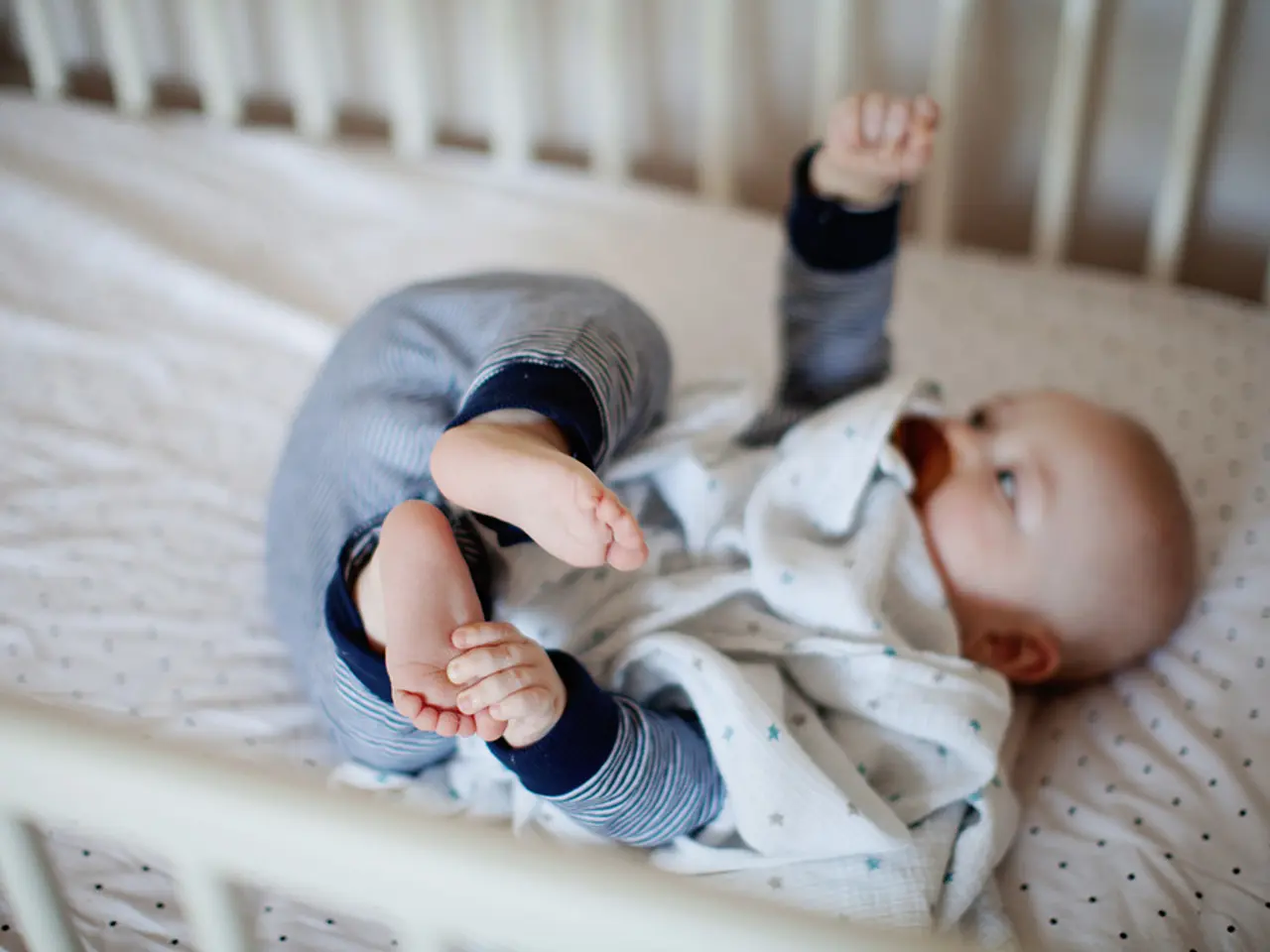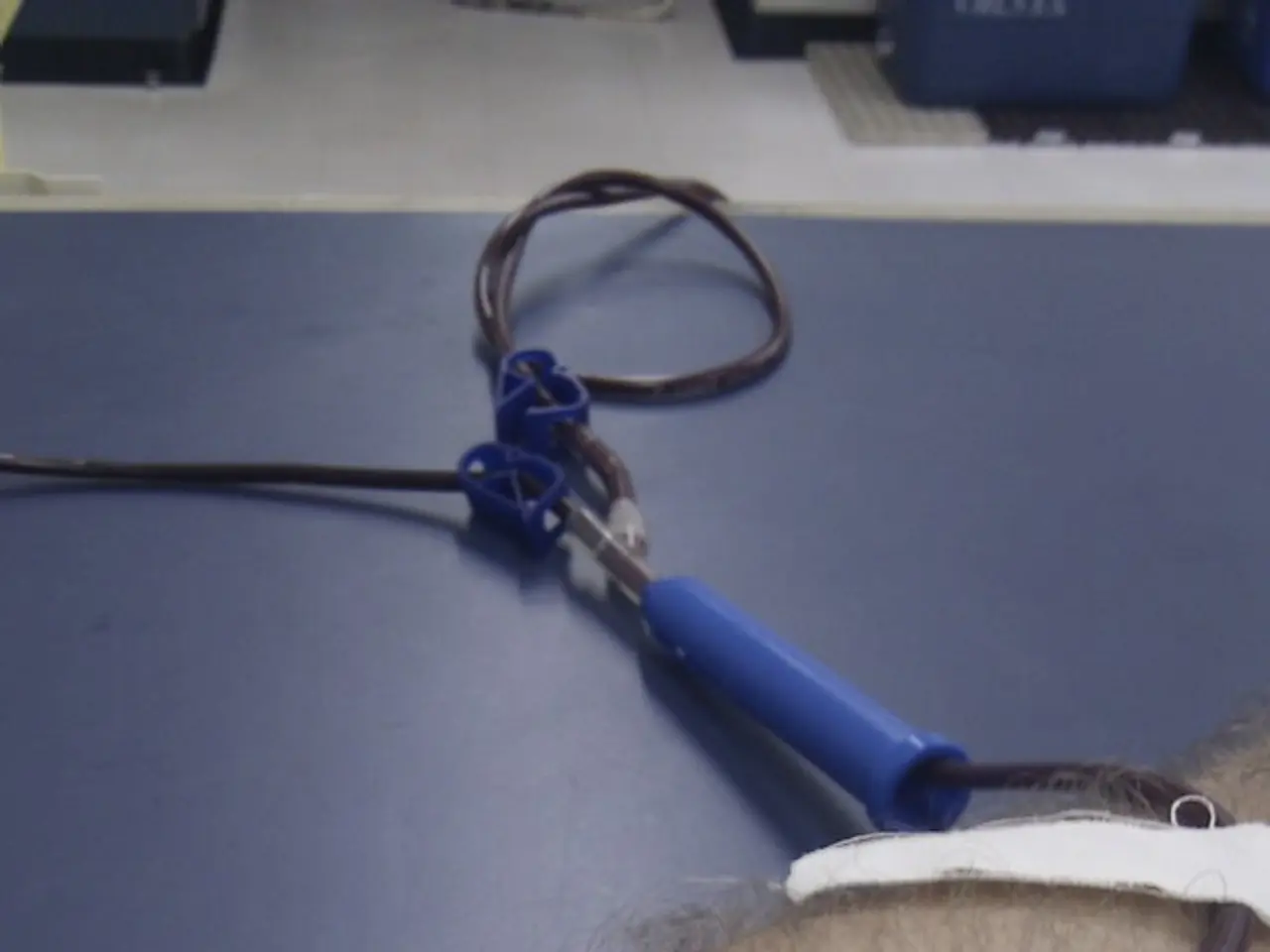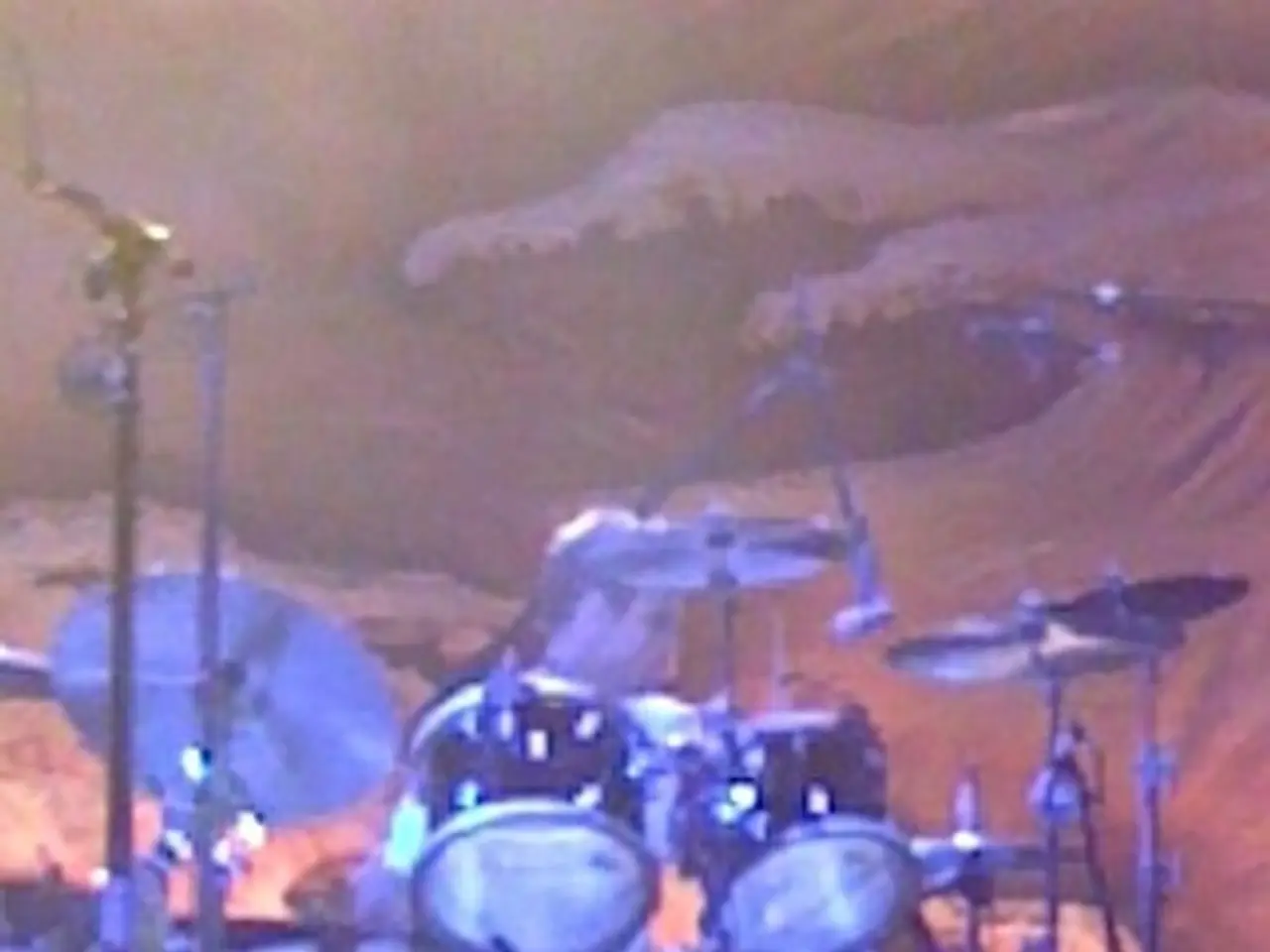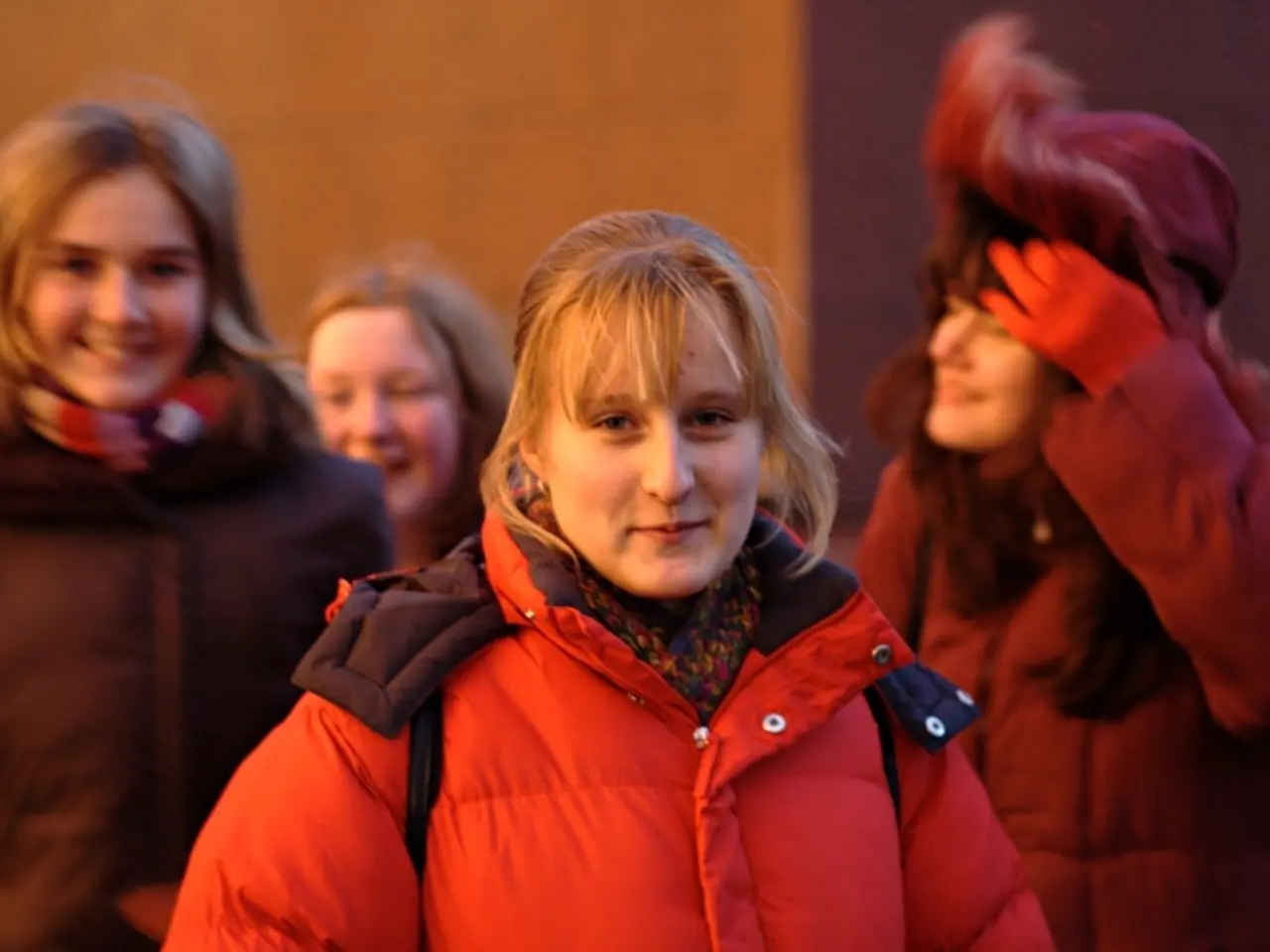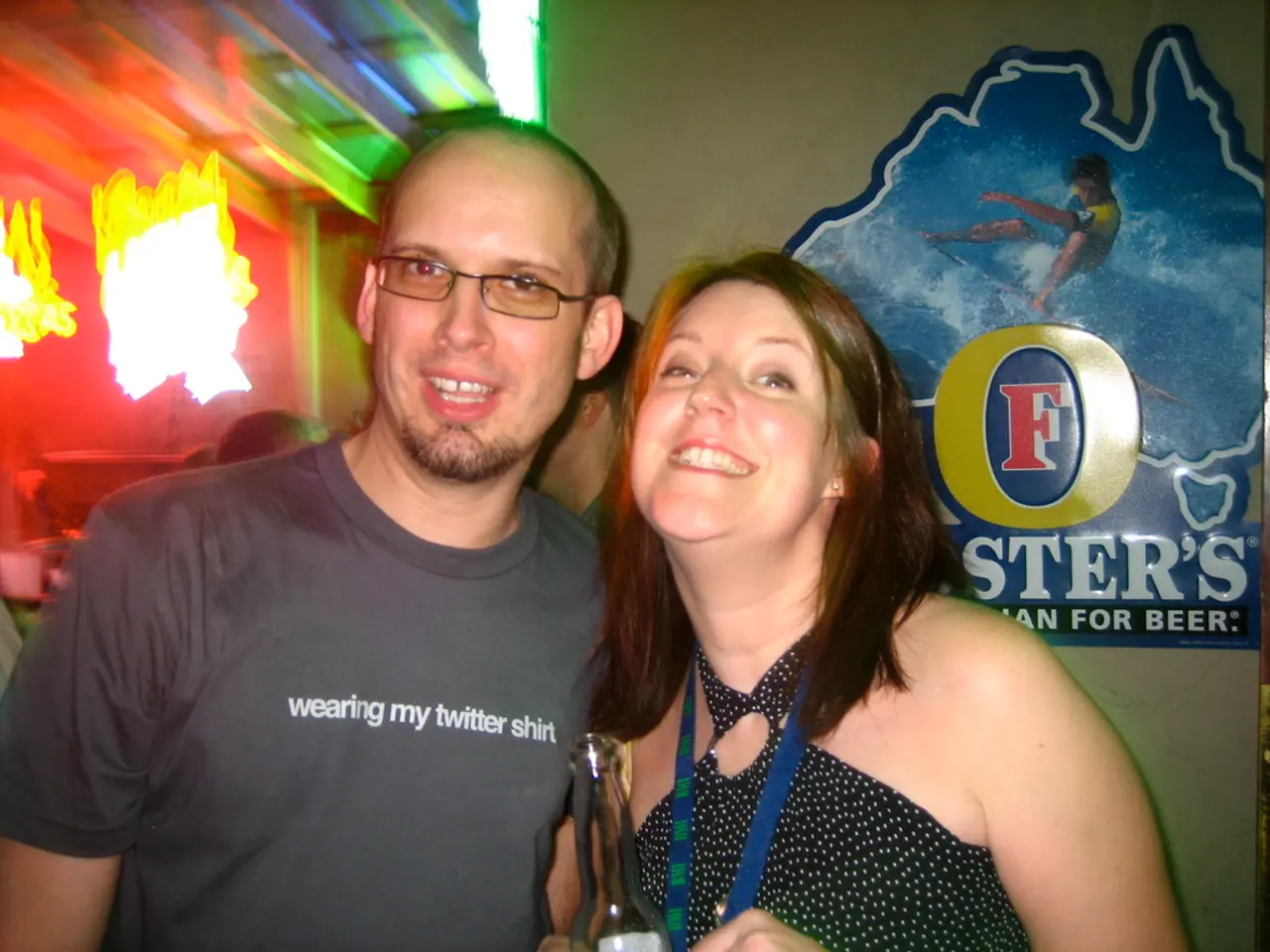Child Falls from Bed and Struck Head: Recognizing Signs of Injury to Consider
Falls are one of the leading causes of non-fatal injuries in children, according to the U.S. Centers for Disease Control and Prevention (CDC). To ensure the safety of our little ones, it's essential to be aware of the signs and symptoms that may indicate an injury, particularly after a fall that results in a head impact.
Recognising the Signs
After a baby falls and hits their head, it's crucial to keep a close eye on them for any unusual behaviour. Here are some key signs to look out for:
Physical Symptoms
- Repeated dizziness or lightheadedness
- Changes in mood or personality, such as increased fussiness
- Ringing in the ears
- Headache (which may worsen or not go away)
- Nausea or vomiting
- Limp or stiff muscles, seizures, or tremors
- Abnormal head shape or unusual stiffness of the neck
- Changes in coordination or weakness in arms or legs
- Clear fluids draining from nose or ears
- Unequal pupil size or dilated pupils
Behavioural or Cognitive Symptoms
- Trouble thinking, concentrating or changes in ability to listen
- Excessive crying difficult to console or refusal to feed in babies
- Changes in sleep patterns (sleeping more or difficulty waking)
- Confusion or disorientation
- Fatigue or drowsiness
- Mood swings, irritability, or unusual behaviour
Other Symptoms
- Loss or change in consciousness, even briefly
- Visual problems (blurred or double vision)
- Slurred speech or balance problems
When to Seek Help
If any of the following symptoms are observed after a baby hits their head, immediate medical attention is required:
- Seizures or convulsions
- Loss of consciousness or difficulty awakening the child
- Severe or worsening headache
- Vomiting repeatedly
- Clear fluid draining from nose or ears
- Unequal or dilated pupils
- Weakness, numbness, or loss of coordination in any limbs
- Confusion, disorientation, or inability to recognize people or places
- Persistent lethargy or difficulty responding
- Any new neurological symptoms such as slurred speech, weakness, or loss of balance
- Constant crying that cannot be consoled or refusal to feed in infants
These signs may indicate a serious brain injury, such as concussion or traumatic brain injury, and warrant immediate evaluation by a healthcare professional.
Preventing Falls
To prevent falls, it's important to secure TVs and furniture to the wall, keep cribs and furniture away from windows, and place car seats or bouncy seats on the floor instead of on a chair or elevated furniture. Additionally, avoid letting kids play unsupervised on high porches, decks, stairs, or balconies.
When using high chairs, infant carriers, swings, and strollers, always ensure the child is strapped in securely. Use a stationary activity center instead of a walker that can tip or fall down stairs.
Remember, babies' skulls are resilient, but it's important not to brush off signs of a serious injury. If a baby is inconsolable after a fall, shows signs of abnormal eye movements, increased sleepiness, or fussiness, these may indicate an injury and should be monitored closely.
Bruising or swelling along a baby's head, or an obvious skull fracture, are signs of a head injury and require medical attention. Uncontrolled bleeding is a sign of a potentially serious injury and requires immediate medical attention.
Early medical assessment is crucial to identify and manage potentially life-threatening complications. By being vigilant and aware, we can help keep our children safe from head injuries.
- In the realm of family-health and child-safety, it's essential to be knowledgeable about the signs and symptoms of head injuries, particularly in children who have experienced falls.
- Be aware of physical symptoms such as repeated dizziness, headache, nausea, limp or stiff muscles, abnormal head shape, changes in coordination, and clear fluids draining from nose or ears, which may indicate a head injury after a fall.
- In cases where a baby shows signs of seizures, loss of consciousness, severe headache, repeated vomiting, unequal or dilated pupils, weakness, confusion, or persistent lethargy, immediate medical attention is required, as these could signal a serious brain injury like a concussion or traumatic brain injury.
